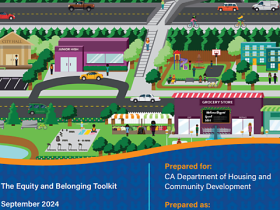David Inserra
Americans are grappling with the horrific assassination of conservative activist Charlie Kirk. Kirk was killed during an event while engaging in civil discourse and debate. This heinous act of violence was not just the murder of a man, father, and husband, but also an assault on the premise and practice of free expression in a liberal democracy. But as we all process such a moment of political violence and the concerning attack on free expression it represents, we should not pursue policies that would also undermine free expression.
Kirk had been an advocate for free expression and rejected the idea of hate speech laws, posting online that even ugly and evil speech “ALL of it is protected by the First Amendment. Keep America Free.” He frequently defended greater free expression in his discussions on college campuses, even if his organization, Turning Point USA, wasn’t perfect on issues of speech.
Likewise, some may admire Kirk’s political positions, while some find them terrible. But the point is that Kirk rejected giving the government power to police non-violent speech and practiced what he preached every time he showed up for a discussion or a debate.
Many are struggling with how to respond to acts of political violence. Notably, in response to his murder, many political leaders have taken this moment to denounce political violence while affirming the importance of vibrant and even uncomfortable discussions. Governor of Utah Spencer Cox implored all Americans to stop the cycle of violence. “We can return violence with violence, we can return hate with hate … at some point we have to find an off-ramp, or it’s going to get much, much worse.” Political opponents of Kirk, like Bill Maher, Cenk Uygur, Bernie Sanders, and others, have issued real, heartfelt, and personal observations on how reprehensible this act was. Ezra Klein commented that he found himself “grieving” for Kirk “because we have to be able to see that the bullet that tore into him was an act of violence against us all.”
Unfortunately, we’ve also seen ugliness in many conversations, especially those online. Too many on the left have taken to celebrating Kirk’s murder, saying he deserved it because of the “hateful” nature of his views. And too many on the right view this as a turning point, a Reichstag fire moment, to declare war on their political enemies.
One of the results has been an eruption in efforts to fire or cancel those who support the death of Kirk. To be clear, we must reject support for political violence, regardless of who the perpetrator is and who the victim is. Political violence is incompatible with a free society. But it is equally clear that ugly and nasty speech must be protected, and the mob should not be empowered to fire anyone for holding a bad view.
But now, a week later, the more concerning responses are those seeking to change policy in ways that would undermine free expression and restrict speech. These solutions will neither diminish the threat of political violence nor further civic discourse. Attorney General Pam Bondi stated in an interview that “there’s free speech, and then there’s hate speech. And there is no place—especially now, especially after what happened to Charlie.… We will absolutely target you, go after you, if you are targeting anyone with hate speech.”
While Bondi tried to walk back those statements and clarify she was only talking about speech that crossed the line into unlawful incitement, in a separate interview, she stated that businesses “have an obligation to get rid of people. You need to look at people who are saying horrible things. And they shouldn’t be working with you. Businesses cannot discriminate. If you want to go in and print posters with Charlie’s pictures on them for a vigil, you have to let them do that. We can prosecute you for that.”
President Trump also expressed support for cracking down on hate speech. In response to a question from ABC’s Jonathan Karl about Bondi’s statements, Trump answered, “She’ll probably go after people like you, because you treat me so unfairly. You have a lot of hate in your heart. Maybe they will come after ABC.”
Other Republicans have also joined in the effort to use government power to silence speech. Representative Clay Higgins (R‑LA) wrote a public letter to the major social media companies, “Please be advised that your platforms are rightfully expected to expeditiously remove all posts that have celebrated the political assassination of Charlie Kirk. Further, the authors of these posts are to be identified and banned from your platform.… I have initiated a Congressional effort to force accountability. If you shield these offenders, Section 230 will not protect your platform from vigorous exposure.” Higgins continues that as a subcommittee chairman, he will be leading a “righteous endeavor” to ensure “appropriate behavior” online.
And then FCC Chairman Carr joined the fray, threatening ABC for Jimmy Kimmel’s unfunny jokes that some have interpreted as saying that Kirk’s shooter was a MAGA supporter. During an interview, Carr stated, “We can do this the easy way or the hard way. These companies can find ways to take action on Kimmel, or there is going to be additional work for the FCC ahead.” Carr cited the public interest and news distortion rules of the FCC to say that the “FCC could make a strong argument that this is sort of an intentional effort to mislead the American people about a very core fundamental fact,” thus threatening the licenses of broadcasters. ABC shelved Kimmel’s show hours later, and Trump praised the move.
All of this is just so wrong. Hate speech has no legal definition in the US and is protected by the First Amendment. Unless speech is an imminent incitement to violence or a true threat, offensive speech is protected—because, as this case shows, Americans radically disagree about what is hateful. While in this case the right is upset about nasty speech online, many on the left have argued for hate speech laws to stop conservative speech on matters of race, religion, and sexuality. Indeed, many on the left believe Charlie Kirk was constantly engaging in hate speech. This is why Charlie Kirk and other conservatives reject the idea of hate speech laws—because allowing the government to police non-violent speech simply makes us all less free by subjecting our speech to the whims of the current government.
We can see this running amok in Europe and other democracies around the world—why follow them down that dark path? And rather than silencing ugly speech that celebrates violence, shouldn’t we want to know more about the beliefs of our fellow citizens? If some large segment of society supports the use of political violence, it is better that we let them speak so that we know the challenges our society faces.
And similarly, government officials using their position to demand social media platforms moderate content in a certain way, “or else,” is unacceptable jawboning. We should not tolerate the party in power leaning on private platforms or media institutions to remove constitutionally protected speech. And the FCC should not have a news distortion policy because it, as my colleagues and I have argued, “is hopelessly subjective and liable to abuse for political ends.”
In the wake of this tragedy, it is deeply concerning to see leaders embracing the siren song of censorship to silence speech they view as hateful and ugly. No matter whose speech it is, no matter how offensive we find it, we must reject the urge to have the government silence speech we dislike.
Instead, we must make the choice to embrace civic discourse, as Kirk himself championed, to find our shared humanity. Our solutions should rely on more speech, not less, to better understand each other and face the real challenges in our society.







